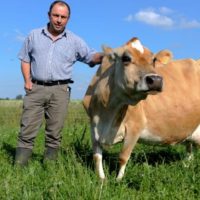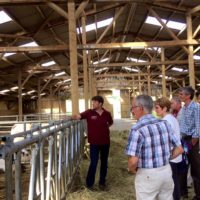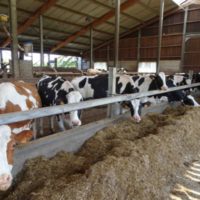Self-reseeding pasture legumes in the economy of the sheep farm
Practice abstract
Description
In South Sardinia (Italy), a sheep farmer replaced a part of the surface devoted to annual crops with self-reseeding pasture legumes. His aim was to increase the forage availability and quality during spring, when grasses dry up, and to avoid ploughing of his shallow soils. The presence of acidic soils does not allow the use of lucerne and annual medics. The farmer chose to test several innovative legumes (Trifolium michelianum, T. incarnatum, T. subterraneum, Ornithopus sativus, Medica polymorpha) in mixtures with cereals or grasses.
Some positive aspects associated to the sowing of these species were:
- Soil characteristics: higher carrying capacity during rainy periods, control of erosion, higher N content, no tillage in sloping soils;
- Higher biodiversity;
- Flexible agronomic decisions: mixtures can be based on legume seeds with different hardseededness, with a positive impact on pasture establishment and persistence;
- Animal production and products: higher yields, improved quality.
Nonetheless, several critical points need attention:
- Weeds management in the year of establishment. It is important to mow residues after grazing, manage grazing to avoid a different grazing pressure on the grassland species by sheep and increase legume seed bank, stopping grazing at the early-flowering phase of legumes.
- Mixtures need to be composed by adapted species, chosen on the basis of type of soil, grassland use and precipitation levels;
- Possible accumulation of parasites in self-reseeded grasslands after years.
To adopt successfully self-reseeding annual pastures in other farms, the farmer recommends to establish self-reseeded grasslands in soils with a poor natural seed bank and to look for technical assistance by the local extension service.
Abstract also available in:
Dutch | French | German | Italian | Polish | Swedish
Additional information
| Farming system | conventional farming |
|---|---|
| Domains of innovation | forage mixture, legume management – Annual legumes, legume management – Perennial legumes |
| Main types of animal | dairy sheep |
| Country | Italy |
| Product type | Practice abstract |
| Language | English, Italian |




